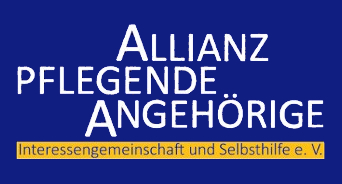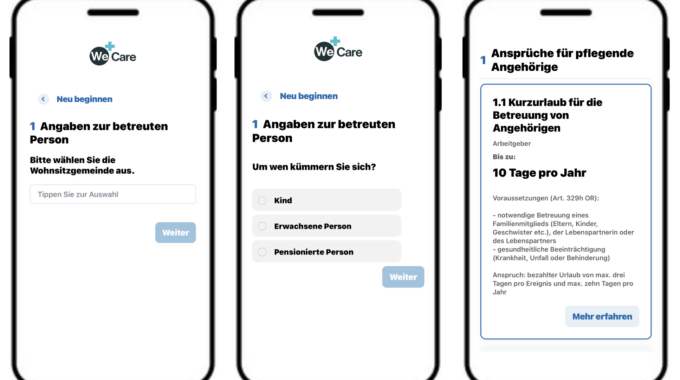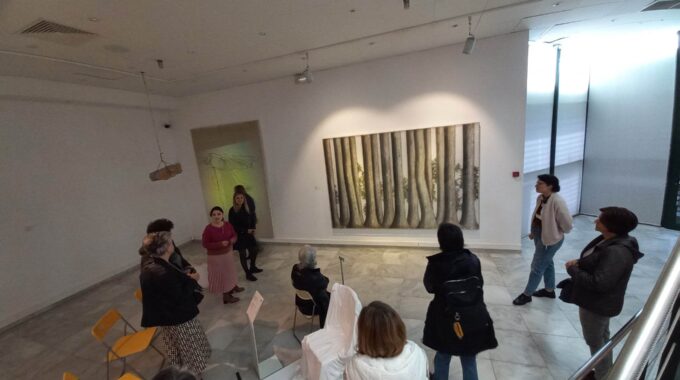
New network for informal carers in Hamburg: “Netzwerk Pflegende Angehörige Hamburg”
In Hamburg, our member “Allianz Pflegende Angehörige – Interessengemeinschaft und Selbsthilfe e.V.” (AllipA: www.allipa.de) is establishing this network with the support of two associations, “Leben mit Behinderung Hamburg Elternverein e.V.” (Living with Disabilities Hamburg Parent Association) and “Alzheimer Gesellschaft Hamburg e.V.” (Alzheimer Society Hamburg). This new initiative is dedicated to enhancing and promoting collaboration among the numerous organizations and initiatives in Hamburg that work towards the interests of various informal caregiver groups. Because, together, we are stronger!
The initiative is funded by nursing care insurance companies until the end of this year. This allows us to finance a project coordinator’s fee from June to December 2023, as well as necessary material expenses. The network is in the process of preparing a new application for additional financial support in 2024 for the benefit of informal caregivers and supporting institutions.
In Hamburg, more than 68,000 people receive care at home (source: vdek statistics 2023). These caregivers belong to different age groups and, in roughly one in three cases, provide care without the assistance of an outpatient care service. These caregivers include not only life partners but also children, siblings, friends, and neighbors of those in need of care. In addition to their work, school, children, and household responsibilities, they assume the role of caring for a loved one. These informal caregivers not only make it possible for those in need of care to remain in their familiar environment but also play a crucial role in the economy. They are the indispensable backbone of caregiving, and as such, they need more visibility, recognition, and relief,” states Dr. Hanneli Döhner, Chairwoman of AllipA.
Caring for someone in need is a highly stressful and demanding task, which often leads to caregiver burnout. The number of people in need of care is expected to significantly increase in the future, leading to a higher demand for informal caregivers. As a result, early support and assistance from organizations and initiatives that advocate for the interests of various informal caregiver groups are of great importance. Making the problems and needs of informal caregivers more visible in Hamburg is essential to achieving greater support and relief. Based on this, the self-help and care structure should be expanded in a citizen-oriented, participatory, and comprehensive manner. We hope that the new network will bring about visible improvements in Hamburg. We will strengthen our public relations efforts and have already published an article in the current newsletter of “Kontakt- und Informationsstellen für Selbsthilfegruppen – KISS Hamburg” (Organization of contact and information centers for self-help groups).
The First Network Symposium will take place on October 12, 2023.
We want to ensure that positive changes are not just a distant goal but an immediate reality. Therefore, as the responsible organization for the network, AllipA has invited interested parties, including experts, informal caregivers, and other citizens of Hamburg, to the first public and free symposium:
Date: Thursday, October 12, 2023 Time: 10 a.m. to 4:30 p.m. Location: St. Markus Senior Center, Gärtnerstr. 63, 20253 Hamburg
The program will include:
- Information on the current situation of informal caregivers and suggestions for their improved support by Prof. Dr. Dr. Andreas Büscher, University of Applied Sciences, Osnabrück.
- Insights into research and practice related to the often-hidden group of Young Carers by Maren Roling, University of Applied Sciences, Osnabrück.
- Current study results and experiences from a specialist center for informal caregivers that has been successfully operating for many years, presented by Veronika Vahrenhorst, head of this center in Berlin.
- Current findings about the situation in Hamburg from the perspectives of network partners and informal caregivers, presented by Christine Berg, the project coordinator of our NwpA-HH.
- Interviews with informal caregivers.
- A final open discussion: What concrete steps should the network in Hamburg take to support and relieve the burden on caregiving relatives?
We would like to extend our gratitude to the speakers for permitting us to publish their presentations, which can be downloaded here: www.allipa.de/netzwerk. Further evaluations of the symposium are in progress and will be posted shortly on our website. We look forward to receiving questions, comments, and suggestions for future network activities via email at netzwerk@allipa.de.





